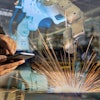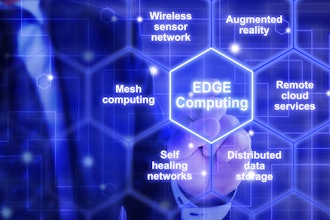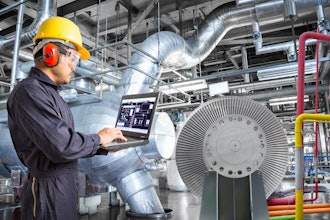A year-long partnership between an automaker and architecture firm predicted a future in which gas stations and parking lots become obsolete thanks to electric vehicles and a smart power grid.
Nissan and Foster + Partners previewed their design study, which was initiated to examine the future of the gas station, at the Geneva International Motor Show.
A video produced by the companies showed how connected cars, homes and streets — combined with zero-emission electric vehicle systems and autonomous driving technology — could replace conventional gas stations altogether and "unlock the true potential hidden in our cities."
In the video, abundant renewable energy from the sun, wind and ocean could be harnessed in the electrical grid.
Wireless charging and self-driving capabilities in the Nissan Leaf, meanwhile, allow electric cars to park themselves at roadside power stations, charge themselves without cables, then depart so another car could recharge "all while you sleep."
The cars could then essentially function as renewable energy storage and help power homes or offices during the day. Recycled car batteries could also function as in-home storage systems.
Commuters, meanwhile, could one day be able to drive their electric vehicles straight to their desk, then allow an automated system to send the car off to park and recharge.
The companies added that more sophisticated infrastructure will be needed to accommodate growing urban populations — which will account for an estimated seven in 10 people by 2050.
“Technology holds many of the answers for the challenges we face in our cities today,” said Nissan Europe Chairman Paul Willcox. "However, the true power comes when those technologies are integrated with each other and the world around us."






















